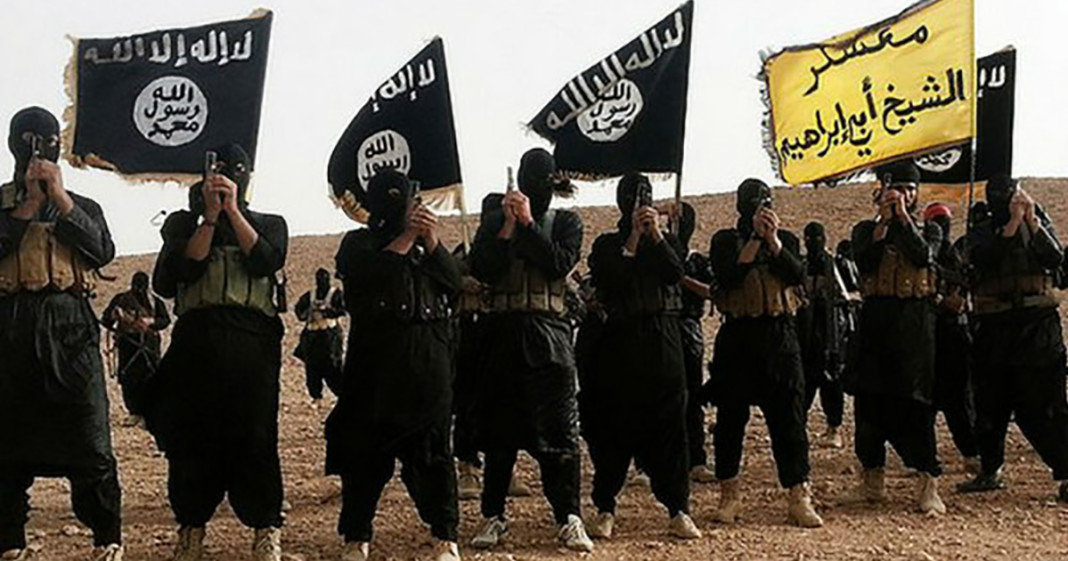As is the case with Christianist terrorists such as the KKK, Islamic terrorists make up a very small – but unfortunately, highly visible – minority of the world’s 1.5 billion Muslims. Because of groups like ISIS, the image of Muslims and their faith has been getting a black eye for a long time. Saudi Arabia apparently has decided that enough is enough. Leading a military coalition of 34 nations, Saudi Arabia and other countries in the region are finally preparing to do their part in fighting ISIS.
According to Saudi Defense Minister Mohammed bin Salman, the coalition’s anti-terrorist efforts will not be confined to actions against ISIS. He told Al Jazeera that the various nations would coordinate action against “any terrorist organization,” and would be working in cooperation with other nations within the framework of local laws. The formation of the coalition comes after pressure from the U.S. and its allies for nations in the region to step up to the plate and take a more active role in fighting Islamic extremists.
According to U.S. Defense Secretary Ashton Carter, the new coalition “is very much in line with something we’ve been urging for quite some time, which is greater involvement in the campaign to combat ISIL by Sunni Arab countries.” German Defense Minister Ursula von der Leyden agrees: “I think it’s right that the opposition is forming a group,” she said. However, she added, “It needs to be part of the Vienna process that includes all countries fighting against [the] Islamic State…[including] Iran and China.” Turkish Prime Minister Ahmet Davutoglu has said that “Turkey is ready to contribute by all its means to all gatherings that aim to fight terrorism, no matter where or by whom they are organised.”
In addition to countries in the region, the coalition includes Egypt, Libya and other north and central African nations as well as Pakistan, Bangladesh and Malaysia. It’s about more than image. All members of the coalition have been targeted by terrorist attacks. Bin-Salman points out: “There are a number of countries that suffer from terrorism. For example, Daesh in Syria and Iraq; terrorism in Sinai, Yemen, Libya, Mali, Nigeria, Pakistan [and] Afghanistan.”
All of this is a grand gesture, but as is often the case, the devil is in the details – or in this case, the lack thereof. According to Farea al-Muslimi, a visiting scholar at the Carnegie Middle East Center, most of the coalition consists of “honorary members.” He adds that the coalition itself “seemed to have been cooked at the last minute,” and is short on clear objectives. To al-Muslimi, the formation of the coalition is Saudi Arabia’s attempt to defuse pressure from the international community to take a more active role in combating ISIS and other terrorist organizations.
The entire issue is far from black-and-white. The civil war in Syria began as an uprising against the Assad regime in 2011 when the Syrian dictator ordered troops to fire on peaceful protesters during Arab Spring demonstrations. However, within months, the situation deteriorated into a four-sided conflict in which outside groups saw opportunities. The battle lines quickly blurred. ISIS was the offspring of al-Qaeda’s Iraqi contingent, born in the wake of the U.S. invasion.
ISIS membership consists of Sunni Muslims; many of its leaders are former members of late Iraqi president Saddam Hussein’s military. When U.S. forces finally withdrew, the reins of government passed to a Shi’ite. Prime Minister Nouri al-Maliki instituted policies targeting Sunnis in retribution for three decades of Shi’ite persecution under Hussein. The current conflict is between the two rival Islamic sects as much as it is between ISIS and the West – if not more so. Ironically, the majority of Iraqi Sunnis have no love for ISIS – but they have accepted it because of their fear of Shi’ite domination. Arguably, had the U.S. been more willing to consider the concerns of Iraqi Sunnis instead of abandoning them – or had never invaded in the first place – ISIS might not even exist today.
The population of Saudi Arabia and the Gulf States is overwhelmingly Sunni. Approximately 10-15% of the Saudi population consist of Shi’ites, who have long been subject to discrimination. Furthermore, Iran – which backs the Assad regime – is overwhelmingly Shi’ite. Iran and Saudi Arabia have long been rivals for influence in the region. While Iran supports Assad, the Saudis have been backing the rebels – yet both rivals also stand against ISIS. Iran, along with Iraq and Syria, is conspicuously absent from the Saudi coalition. This has raised questions about whether formation of the largely-Sunni alliance is meant to present a unified front against terrorists – or Iran.
Aside from the complexity of the conflict and the long-running sectarian feud between Sunnis and Shi’ites (which goes back nearly 1400 years), it is worth noting Saudi Arabia’s acknowledgment that Islam forbids “corruption and destruction in the world,” and considers terrorism to be “a serious violation of human dignity and rights, especially the right to life and security.”
This is indeed the case. There are verses in the Quran that call for the use of violence – but only in the defense of one’s self and others from aggressors. Unfortunately, these passages (like similar passages from the Bible) are frequently taken out of context and used by a fanatical minority to justify acts of terror against “infidels.” Nonetheless, the Quran is very clear in its condemnation of aggressive warfare: “Fight in the way of God against those who fight against you, but begin not hostilities. Lo! God loveth not aggressors” (Sura al-Baqarah, 2:190).
It appears that, by forming this coalition, the Saudis – long suspected of sponsoring terrorism – are prepared to take this and similar passages from their holy book to heart.




